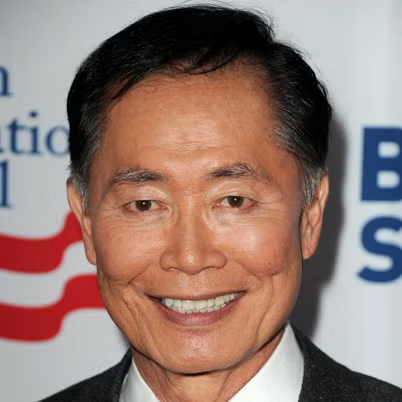
Table of Contents
Who is George Takei?
George Takei is a trailblazing actor, activist, and social media icon, best known for his role as Lieutenant Hikaru Sulu in the Star Trek franchise. Overcoming racial barriers of his time, Takei became a prominent figure in both the entertainment industry and social justice causes, particularly advocating for gay rights and the Japanese American community.
Early Years
George Hosato Takei was born on April 20, 1937, in Los Angeles, California. At the age of five, he and his family were forcibly relocated to Japanese internment camps in Arkansas and Northern California during World War II. After the war, they returned to Los Angeles, where Takei attended the University of California, Berkeley, initially studying architecture before shifting his focus to acting.
Stage and Screen
While at Berkeley, Takei responded to a newspaper ad seeking Asian voiceover actors for the English version of the Japanese monster film Rodan (1956). This led to further voiceover work and minor roles in television shows such as Perry Mason and the 1960 film Ice Palace. He later transferred to the University of California, Los Angeles (UCLA), where he earned both a bachelor’s and a master’s degree in theater.
In 1966, Takei achieved widespread recognition as Lieutenant Hikaru Sulu on the iconic science fiction series Star Trek. His role as the helmsman of the USS Enterprise made him one of the first Asian Americans to be featured prominently on television. Although Star Trek was canceled in 1969, Takei’s portrayal of Sulu would continue to resonate, and he reprised the role in six Star Trek films, starting with Star Trek: The Motion Picture (1979).
Throughout the 1970s, Takei maintained a steady presence on television, appearing in shows such as The Six Million Dollar Man and Hawaii Five-O, and voicing Sulu in the animated Star Trek series. In the 1990s, Takei’s distinctive baritone voice found new outlets, with notable roles in Mulan (1998) and The Simpsons. He also became a semi-regular guest on The Howard Stern Show, where he was named the official announcer in 2006.
A highlight of Takei’s career came in 2012 when he starred in Allegiance, a musical about the internment of Japanese Americans during World War II. The play, which premiered at San Diego’s Old Globe Theater, resonated deeply with Takei due to his personal experiences as an internment camp survivor.
Public Service and Private Revelations
Beyond his acting career, Takei has been actively involved in public service and advocacy. In 1973, he ran for a seat on the Los Angeles City Council but narrowly lost. He later served on the board of the Southern California Transit District from 1973 to 1984 and was appointed to the Japan-United States Friendship Commission by President Bill Clinton. In recognition of his contributions, Takei was awarded the Order of the Rising Sun, Gold Rays with Rosette, by the Emperor of Japan in 2004.
Takei also played a significant role in the Japanese American National Museum, serving as chairman emeritus of its board of trustees. Additionally, he has been an advocate for the arts, chairing the council of governors for East West Players, a renowned Asian-American theater organization.
In 2005, Takei publicly came out as gay in an interview with Frontiers magazine. He married his longtime partner, Brad Altman, in September 2008.
In recent years, Takei has garnered a new wave of admirers through his witty, thought-provoking posts on social media platforms like Facebook. His social media presence, coupled with his continued involvement in Star Trek projects, including the 2013 film Star Trek Into Darkness, has ensured his enduring influence both in entertainment and activism.
